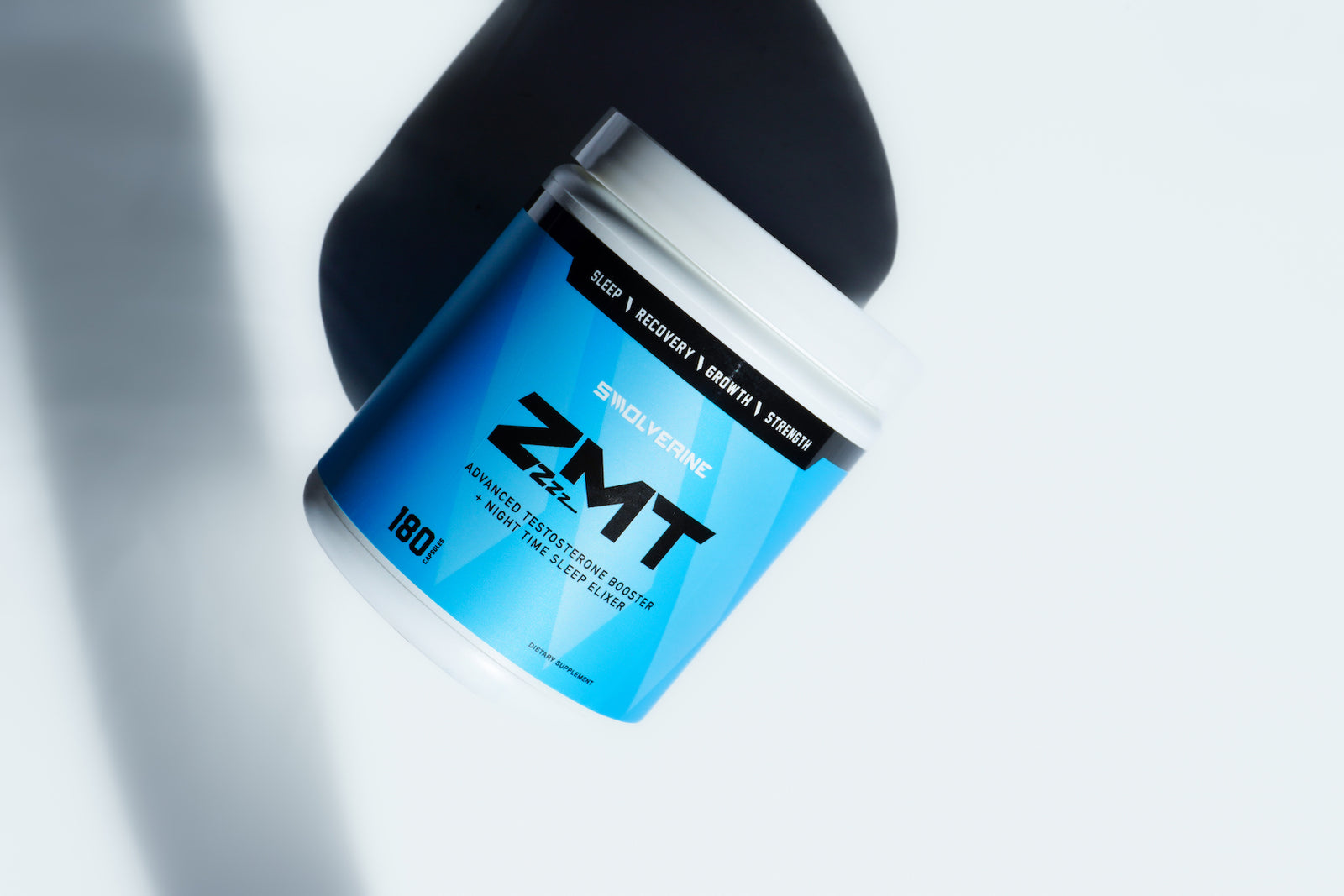Magnesium is a crucial macro-mineral that plays an important part in nearly every human enzymatic reaction in your body. Yet, nearly 68% of Americans are not getting the recommended daily allowance of Magnesium, through their dietary intake. Insufficient amounts of Magnesium are directly related to poor health outcomes, including hypertension, anxiety, and chronic illness such as cardiovascular disease and diabetes. Since the majority of the population is getting inadequate levels of Magnesium, supplementation is critical, to help prevent disease and fight the aging process.
In this article, you will learn
- What Does Magnesium Do?
- What Are The Benefits Of Magnesium?
- Do I Need A Magnesium Supplement?
What Does Magnesium Do?
What does Magnesium actually do? It’s a fair question. While, the biological functions of Magnesium are relatively broad, which include the production of nucleic acids, involvement in adenosine triphosphate (ATP), and helping muscle contraction magnesium’s most imperative function is to help regulate proper bone structure through mediating and coordinating calcium concentration [R].
Benefits Of Magnesium
1. Magnesium Benefits Bone Health
As we age, your bones progressively lose density and become frail. Studies have shown that greater intakes of magnesium can increase bone density through conserving skeletal muscle mass, which helps prevent bone frailty and age-related diseases such as sacropenia and osteoporosis [R]. Taking a high-quality magnesium supplement, that has 100% of your recommended daily intake, is crucial for preventing bone frailty and potential fractures, especially in high impact endurance sports, such as CrossFit.
RELATED ARTICLE Best Supplements For Bone Health
2. Magnesium Benefits Sleep
Studies show that magnesium can help improve sleep quality. Poor quality and quantity of sleep, not only affects the way you feel, productivity, and mental processing, but it can also adversely affect your metabolic function and cardiovascular system. Ever wonder why you can’t lose weight despite eating healthy and fitnessing daily? Your sleep plays a huge role.
Sleep and wake cycle is regulated by the suprachiasmatic nucleus in the brain, which also coordinates the circadian rhythms in other tissues through the body. Studies suggest that Magnesium supplementation can help improve insomnia symptoms, sleep duration and improve sleep quality. If you don’t get adequate levels of sleep, it can be detrimental to your entire quality of life. Personally, if I don’t get good a good nights rest with high-quality sleep, my entire next day, is literally ruined.
Swolverine’s ZMT supplement contains Zinc, Magnesium, and Vitamin B6, which are proven to benefit overall sleep duration and improve efficiency and quality of rest
Leave the bottle on your nightstand and take two before bed. No more counting sheep, no more groggy mornings, say hello to the new positively, balanced, refreshed, you [R].
RELATED ARTICLE Magnesium Glycinate: The Best Type Of Magnesium For Sleep
3. Magnesium Benefits Athletic Performance
Magnesium is the most investigated mineral involved with muscle function. Studies have shown that Magnesium has benefits on skeletal muscle and physical performance, directly from improved muscle contraction [R]. Research also indicates that Magnesium can benefit oxygen uptake and total work output, from improved endurance [R]. By improving endurance, you can increase work output and workout volume. More volume translates into greater gains in strength, faster time trials, quicker sprints, and improved athletic performance.
Similarly, a study conducted on division I collegiate athletes showed that magnesium supplementation significantly improved endurance performance and oxygen utilization [R]. If you want to replicate the athletic benefits associated with Magnesium supplementation, then it’s recommended to take 400mg per day, which is the recommended daily allowance.
4. Magnesium Improves Heart Health
Maintaining optimal heart health is critical in preventing the aging process. Magnesium plays a pivotal role in several mechanisms involving human pathologies and metabolic processes, including ATP-dependent biochemical reactions, synthesis of DNA, RNA expression, cell signaling at muscle and nerve levels, and glucose and blood pressure (BP) control, among others things [R].
Current evidence suggests, that Magnesium supplementation can help prevent cardiovascular risk factors, including hypertension, heart failure, and stroke. If you want to take preventive action and ensure a long healthy heart taking a daily Magnesium supplement, can help reduce the chance of an adverse cardiovascular event [R].
5. Magnesium Reduces Migraines
Migraines are the most debilitating form of headache and affect 12% of the Western population. If you’ve had one, then you know, they’re not fun. Magnesium is believed to be involved in a number of pathologies directly related to migraines, specifically in the mechanism to block NMDA receptors, which are responsible for the nociceptive pain conducted along the trigeminal nerve, resulting in severe migraines [R]. Furthermore, in a systematic review, two level one randomized controlled trials showed a significant reduction of the number of migraine attacks compared with placebo [R, R].
6. Magnesium Helps Reduce Stress & Anxiety
All of us have some sort of anxiety and stress. It’s a well-known fact of life. We’re all stressed, whether it’s a deadline at work, making your kids baseball games, or keeping your significant other happy, our lives are filled with constant stressors. Magnesium modulates activity of the of the hypothalamic pituitary adrenal axis (HPAA) which is a central part of the stress response system [R]. Magnesium supplementation has been shown to attenuate the activity of the HPAA, including a reduction in cortisol from the central and peripheral responses of this system [R,R]. Therefore, including a magnesium supplement may benefit anxiety through moderating the stress response [R].
RELATED ARTICLE Best Supplements For Stress And Anxiety
Benefits Of Magnesium: Takeaway
Magnesium is a power-packed macro mineral. Considering Magnesium is responsible for over 300 enzymatic and reactions in the human body, getting an adequate amount of Magnesium in your diet could in fact positively alter the way you feel and perform. Most Americans are Magnesium deficient and don’t get enough Magnesium through dietary sources, resulting in poor bodily function, higher risk for cardiovascular events and bone fracture, and sub-optimal health.
Foods like seeds, nuts, legumes, and bananas are high in Magnesium and can help you achieve higher Magnesium levels. However, supplementation is an easy and convenient way to ensure you bridge the gaps in your micronutrients and maintain adequate Magnesium levels to achieve optimal health and wellness.
Naturally increasing Magnesium levels can help improve bone health to avoid injury, help you get better quality sleep, reduce migraines and headaches, reduce your stress levels, improve heart health, and even enhance your athletic performance. Take the first step and start supplementing with ZMT from Swolverine
Looking For The Best Magnesium Supplement For Better Sleep and Relaxation?
SWOLVERINE is an endurance athlete and active lifestyle brand. Made for the elite athlete, and the strong-willed our products were designed to fuel your athletic performance. We perform when you perform.
We believe that everyone can optimize not only their athletic performance but their human potential. The way we believe we can optimize performance is through transparency, clinically effective doses, and clinically proven ingredients with evidence-based outcomes. We provide the nutrients you need to power your active lifestyle.
References
Boyle, Neil Bernard et al. “The Effects of Magnesium Supplementation on Subjective Anxiety and Stress-A Systematic Review.” Nutrients vol. 9,5 429. 26 Apr. 2017, doi:10.3390/nu9050429
Welch, Ailsa A et al. “Dietary Magnesium May Be Protective for Aging of Bone and Skeletal Muscle in Middle and Younger Older Age Men and Women: Cross-Sectional Findings from the UK Biobank Cohort.” Nutrients vol. 9,11 1189. 30 Oct. 2017, doi:10.3390/nu9111189
Murck H, Steiger A. Mg2+ reduces ACTH secretion and enhances spindle power without changing delta power during sleep in men -- possible therapeutic implications. Psychopharmacology (Berl). 1998;137(3):247-52.
Held K, Antonijevic IA, Künzel H, et al. Oral Mg(2+) supplementation reverses age-related neuroendocrine and sleep EEG changes in humans. Pharmacopsychiatry. 2002;35(4):135-43.
Hoane MR. The role of magnesium therapy in learning and memory. In: Vink R, Nechifor M, editors. Magnesium in the Central Nervous System [Internet]. Adelaide (AU): University of Adelaide Press; 2011.
Von luckner A, Riederer F. Magnesium in Migraine Prophylaxis-Is There an Evidence-Based Rationale? A Systematic Review. Headache. 2018;58(2):199-209.
Mauskop A, Altura BM. Role of magnesium in the pathogenesis and treatment of migraines. Clin Neurosci. 1998;5(1):24-7.
Barbagallo M, Dominguez LJ. Magnesium and aging. Current Pharmaceutical Design. 2010;16(7):832–839. [PubMed] [Google Scholar]
Rude RK. Magnesium metabolism and deficiency. Endocrinology and Metabolism Clinics of North America. 1993;22(2):377–395. [PubMed] [Google Scholar]
Brilla LR, Gunther KB. Effect of magnesium supplementation on exercise time to exhaustion. Medicine, Exercise, Nutrition and Health. 1995;4:230–233. [Google Scholar]
Rosique-Esteban, Nuria et al. “Dietary Magnesium and Cardiovascular Disease: A Review with Emphasis in Epidemiological Studies.” Nutrients vol. 10,2 168. 1 Feb. 2018, doi:10.3390/nu10020168
Peacock JM, Ohira T, Post W, Sotoodehnia N, Rosamond W, Folsom AR. Serum magnesium and risk of sudden cardiac death in the Atherosclerosis Risk in Communities (ARIC) Study. Am Heart J. 2010;160(3):464-70.
Cao, Yingting et al. “Magnesium Intake and Sleep Disorder Symptoms: Findings from the Jiangsu Nutrition Study of Chinese Adults at Five-Year Follow-Up.” Nutrients vol. 10,10 1354. 21 Sep. 2018, doi:10.3390/nu10101354













